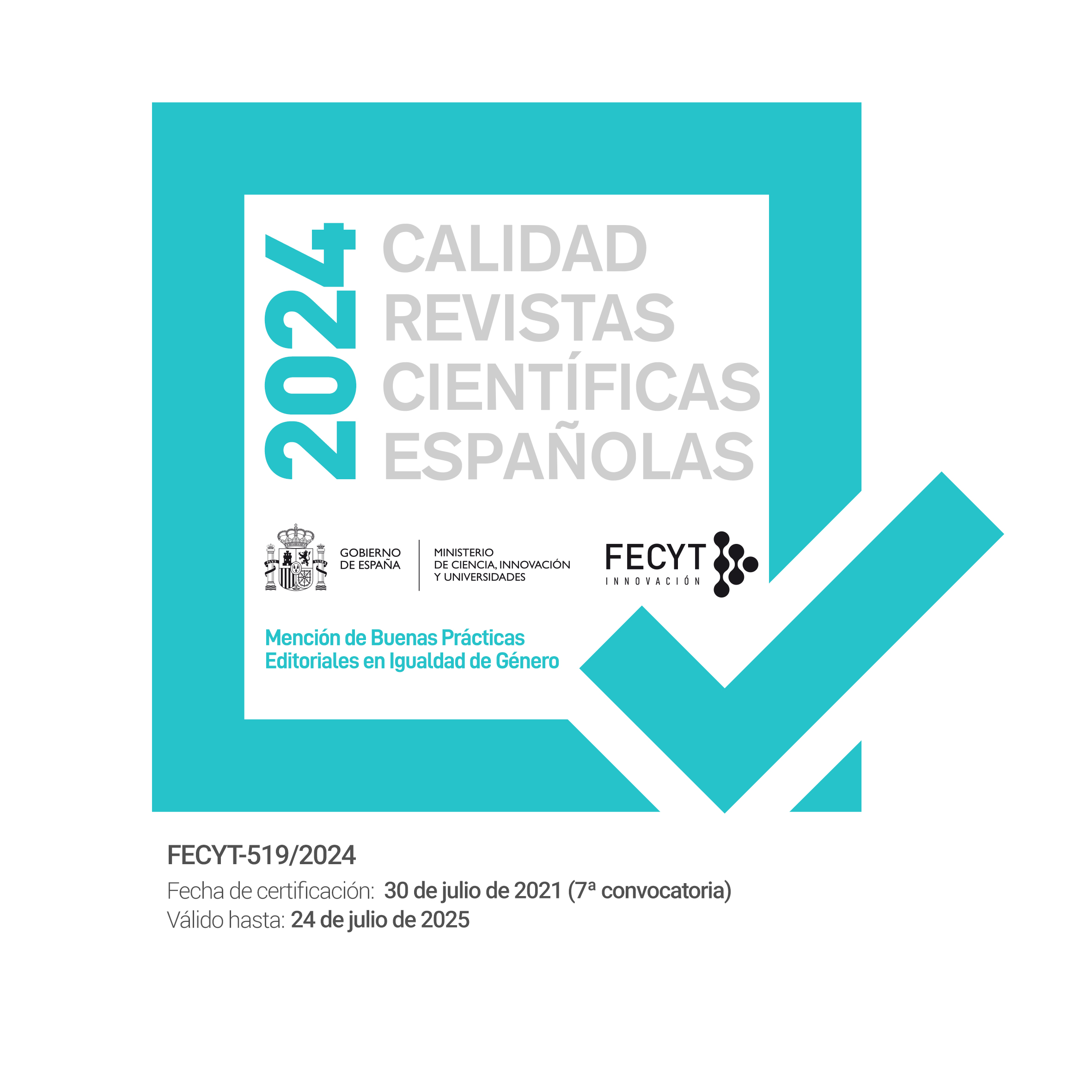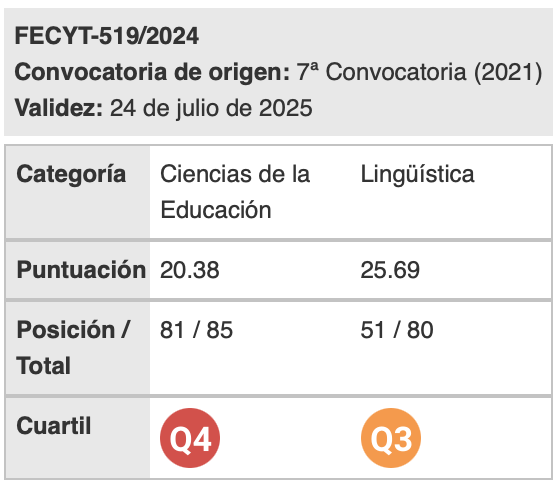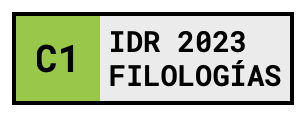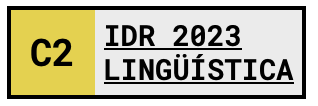The Opinion Essay as Example of Discourse Analysis: Rhetorical Assessment
Palabras clave:
argumentation, argument, text, context, Rhetorics, rhetorical figure, discourse, essay, class of textResumen
The argumentative class of texts possesses a certain structure that allows the addressee to recognise the possible controversy of the ideas posed in it, be it for the persuasion of some conflicting view or the mere reflection on what has been uttered. In particular, the opinion essay, as an argumentative exemplar, can be analysed following a rhetorical model regarding a double perspective: the textual analysis of the piece and the contextual assessment, in which some ideological traits can usually be found. To this respect, the student who takes up English for a specific purpose, in this case the analysis of the argumentative discourse, can find in the rhetorical outline that we propose some tools for the depiction of this and other classes of texts he or she may encounter.
Descargas
Citas
Arenas Cruz, María Elena (1997). Hacia una teoría general del ensayo. Construcción
del texto ensayístico. Cuenca: U. de Castilla-La Mancha.
Colebrook, Claire (2000). “The Meaning of Irony”. Textual Practice 14, 1: 5-30.
Eemeren, Frans H. van R. Grootendorst, A. F. Snoeck Henkemans, J. A. Blair, R. H. Johnson, E. C. W. Krabbe, Ch. Plantin, D. N. Walton, Ch. A. Willard, J. Woods and D. Zarefsky (1996). Fundamentals of Argumentation Theory. A Handbook of Historical Backgrounds and Contemporary Developments. New Jersey: Lawrence Erlbaum.
Frogel, S. (2004). “Philosophical argumentation: Logic and Rhetoric.” Argumentation 18, 2: 171-88.
Godin, Benoît (1999). “Argument from the Consequences and the Urge to Polari- ze”. Argumentation 13, 4: 347-365.
Kertzer, J. M. (1987). “Rhetorical Questions: Consensus, Authority and Enigma”. Language and Style 20: 242-256.
Leith, D. and G. Myerson (1989). The Power of Address. Explorations in Rhetoric. London: Routledge.
Liu, Yameng (1997). “Authority, Presumption, and Invention”. Philosophy and Rhetoric 30, 4: 413-427.
Martínez-Cabeza, Miguel Ángel (2002). The Study of Language beyond the Sentence. From Text Grammar to Discourse Analysis. Granada: Comares.
Martínez-Dueñas Espejo, José Luis (2002). Retórica de la lengua inglesa. Granada: Comares.
Nielsen, Anne Ellerup (1996). “The Argumentative Impact of Causal Relations. An Exemplary Analysis of the Free Predicate in the Promotional Discourse”. Argumentation 10, 3: 329-345.
Olmsted, Wendy (1997). “The Uses of Rhetoric: Indeterminacy in Legal Reaso- ning, Practical Thinking, and the Interpretation of Literary Figures.” Rhetoric and Hermeneutics in Our Time: A Reader. Eds. Walter Jost and Michael J. Hyde. New Haven and London: Yale UP: 235-253.
Perelman, Ch. and L. Olbrechts-Tyteca (1989), [1976]. Tratado de la argumentación. La Nueva Retórica. Trans. J. Sevilla Muñoz. Madrid: Gredos.
Simpson, Paul (1993) Language, Ideology and Point of View. London: Routledge. Vickers, Brian (1988). In Defence of Rhetoric. Oxford: Clarendon.
— http: // www.guardian.co.uk/g2/story/0,,2098154,00.html
Descargas
Publicado
Cómo citar
Número
Sección
Licencia
Aquellos autores/as que tengan publicaciones con esta revista, aceptan los términos siguientes:
- Los autores/as conservarán sus derechos de autor y garantizarán a la revista el derecho de primera publicación de su obra, el cuál estará simultáneamente sujeto a la Licencia de reconocimiento de Creative Commons que permite a terceros compartir la obra siempre que se indique su autor y su primera publicación esta revista.
- Los autores/as podrán adoptar otros acuerdos de licencia no exclusiva de distribución de la versión de la obra publicada (p. ej.: depositarla en un archivo telemático institucional o publicarla en un volumen monográfico) siempre que se indique la publicación inicial en esta revista.
- Se permite y recomienda a los autores/as difundir su obra a través de Internet (p. ej.: en archivos telemáticos institucionales o en su página web) antes y durante el proceso de envío, lo cual puede producir intercambios interesantes y aumentar las citas de la obra publicada. (Véase El efecto del acceso abierto).

Revista de Lenguas para fines específicos is licensed under a Creative Commons Reconocimiento-NoComercial-SinObraDerivada 4.0 Internacional License.






















